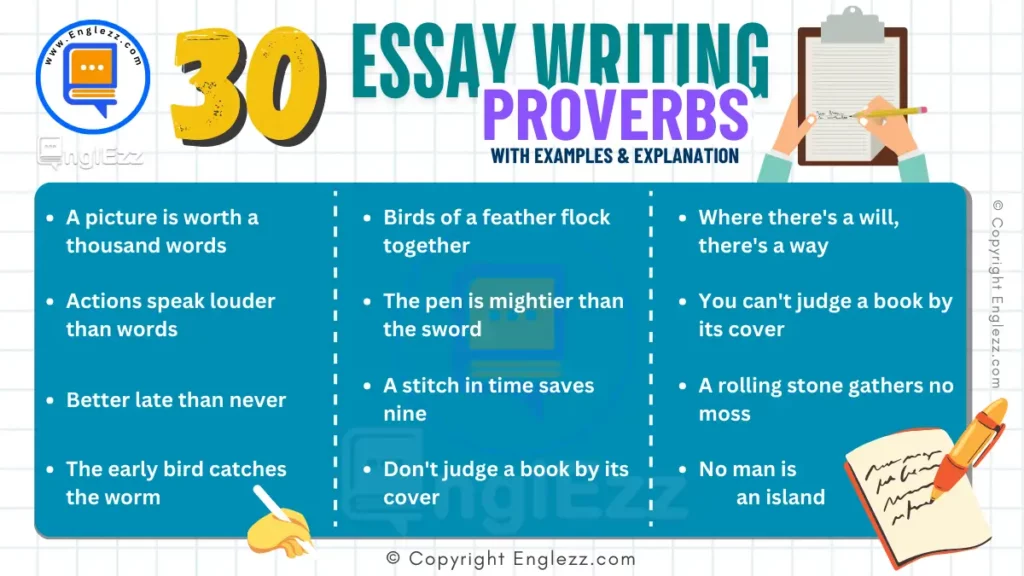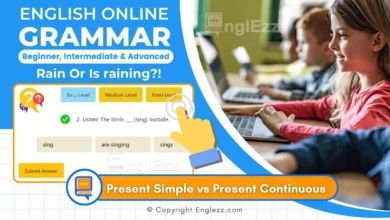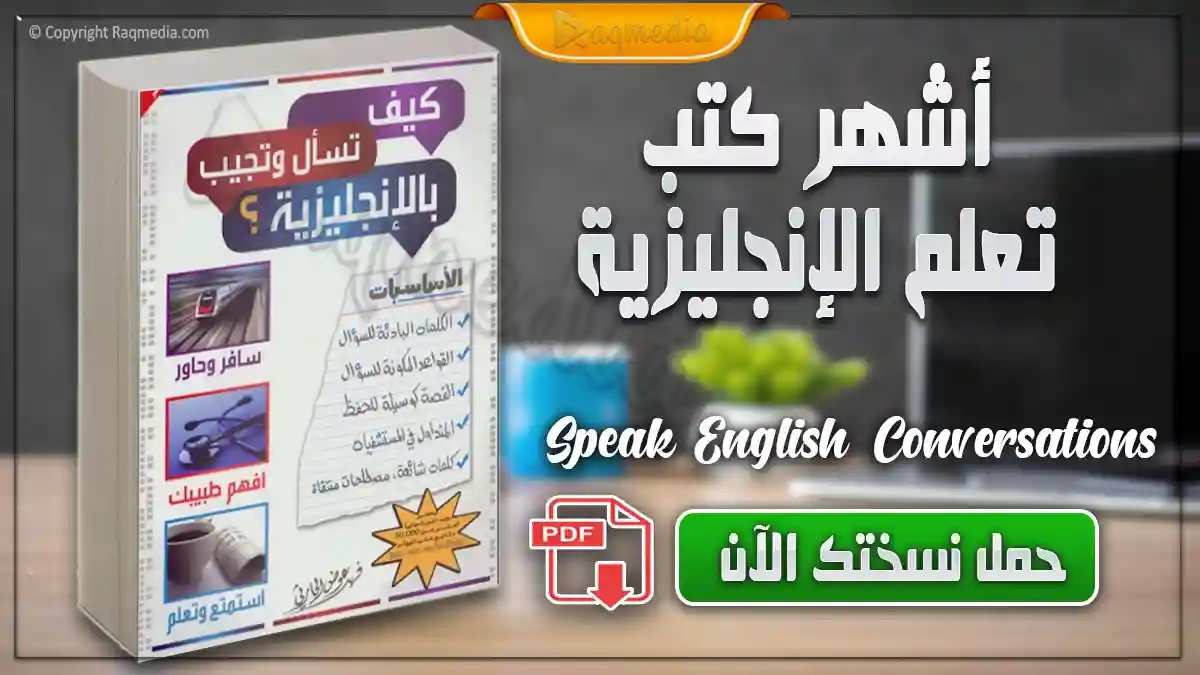Writing an essay can be a challenging task, especially when it comes to crafting compelling arguments and supporting them with relevant expressions. Proverbs, with their time-tested wisdom and universal truths, can be powerful tools in essay writing. In this post, we will explore 30 of the best proverbs for essay writing. We will provide the meaning, phonetic transcription, and examples of how each proverb can be used in your essays.
By incorporating proverbs, you not only add depth to your arguments but also connect with readers on a deeper level, bringing a sense of familiarity and relatability to your work.
30 Best Proverbs for Essay Writing with Meaning and Examples for Students
These proverbs can serve as effective tools for illustrating points, providing a concise summary of ideas, or emphasizing moral lessons. Whether you are a student looking to improve your writing skills or someone who wants to understand the nuanced use of language in essays, these proverbs will prove invaluable.

So, if you’re ready to take your essay writing to the next level, keep reading. And don’t forget to follow and like @EnglEzz for more tips and tricks on mastering the English language! 🌟✍️ #EssayWriting #ProverbsForEssays #StudyTips
#1. “Actions speak louder than words” 🗣️
Phonetic Transcription: /ˈækʃənz spiːk ˈlaʊdər ðən wɜːrdz/
Meaning: This proverb means that what people do is more significant than what they say. Actions are a better indicator of intentions and character than words.
Examples:
- In an essay about leadership, you could write: “As the proverb goes, ‘Actions speak louder than words.’ True leaders demonstrate their values through their actions, not just their speeches.”
- To emphasize the importance of integrity, you might say: “It’s often said that ‘Actions speak louder than words.’ This is especially true when discussing personal ethics and honesty.”
#2. “A picture is worth a thousand words” 📸
Phonetic Transcription: /ə ˈpɪktʃər ɪz wɜːrθ ə ˈθaʊzənd wɜːrdz/
Meaning: This proverb suggests that a single image can convey complex information or emotions more effectively than a lengthy description.
Examples:
- In an essay on communication, you could state: “In today’s digital age, ‘A picture is worth a thousand words.’ Images on social media can often express sentiments that words cannot capture.
- To highlight the impact of visual aids, you might write: “When presenting data, remember that ‘A picture is worth a thousand words.’ Graphs and charts can make information clearer and more memorable.”
#3. “Better late than never” ⏰
Phonetic Transcription: /ˈbɛtər leɪt ðæn ˈnɛvər/
Meaning: It’s better to do something late than not do it at all.
Examples:
- In discussing perseverance, you might write: “As the old saying goes, ‘Better late than never.’ Completing a task, even if it’s delayed, is more valuable than abandoning it altogether.”
- For an essay on personal growth, you could mention: “‘Better late than never’ is a proverb that reminds us it’s always worthwhile to make improvements, regardless of how long it takes.”
#4. “Birds of a feather flock together” 🕊️
Phonetic Transcription: /bɜːrdz əv ə ˈfɛðər flɒk təˈɡɛðər/
Meaning: People with similar interests or characteristics tend to associate with each other.
Examples:
- In an essay about social dynamics, you might write: “‘Birds of a feather flock together,’ indicating that people naturally gravitate towards those who share similar values or lifestyles.”
- To discuss team dynamics, you could say: “In team projects, ‘Birds of a feather flock together,’ often leading to groups forming based on shared skills or interests.”
#5. “The early bird catches the worm” 🌅
Phonetic Transcription: /ði ˈɜːrli bɜːrd ˈkætʃɪz ðə wɜːrm/
Meaning: Those who start early or act promptly are more likely to succeed.
Examples:
- In an essay on time management, you might use: “Remember, ‘The early bird catches the worm.’ Starting your day early can lead to greater productivity and success.”
- When discussing opportunities, you could mention: “The proverb ‘The early bird catches the worm’ underscores the importance of seizing opportunities as soon as they arise.”
#6. “Every cloud has a silver lining” ☁️
Phonetic Transcription: /ˈɛvri klaʊd hæz ə ˈsɪlvər ˈlaɪnɪŋ/
Meaning: Every difficult or unpleasant situation has a positive aspect.
Examples:
- In an essay on resilience, you could write: “‘Every cloud has a silver lining’ is a reminder that even in tough times, there is hope for a better outcome.”
- For a piece on optimism, you might say: “It’s often said, ‘Every cloud has a silver lining,’ encouraging us to find the positives even in challenging situations.”
#7. “A journey of a thousand miles begins with a single step” 🛤️
Phonetic Transcription: /ə ˈdʒɜːrni əv ə ˈθaʊzənd maɪlz bɪˈɡɪnz wɪð ə ˈsɪŋɡəl stɛp/
Meaning: Great things start with small beginnings.
Examples:
- In an essay about goal-setting, you might write: “‘A journey of a thousand miles begins with a single step,’ emphasizing the importance of taking the first step towards any big goal.
- To discuss personal development, you could say: “As the proverb states, ‘A journey of a thousand miles begins with a single step.’ Even the longest and most challenging endeavors have a starting point.”
#8. “All that glitters is not gold” ✨
Phonetic Transcription: /ɔːl ðæt ˈɡlɪtərz ɪz nɒt ɡoʊld/
Meaning: Not everything that looks valuable on the outside is actually valuable.
Examples:
- In a discussion on consumerism, you might use: “‘All that glitters is not gold.’ Just because something appears attractive doesn’t mean it holds true value.”
- For an essay on deception, you could mention: “‘All that glitters is not gold’ serves as a warning that appearances can be deceiving.”
#9. “Rome wasn’t built in a day” 🏛️
Phonetic Transcription: /roʊm ˈwɒznt bɪlt ɪn ə deɪ/
Meaning: Important work takes time to complete.
Examples:
- When writing about perseverance, you might say: “The proverb ‘Rome wasn’t built in a day’ reminds us that significant achievements require time and effort.”
- In an essay on patience, you could state: “‘Rome wasn’t built in a day.’ Patience and persistence are key when working towards long-term goals.”
#10. “Honesty is the best policy” 🕊️
Phonetic Transcription: /ˈɒnəsti ɪz ðə bɛst ˈpɒlɪsi/
Meaning: Being truthful is the most effective approach.
Examples:
- In an essay on ethics, you could write: “‘Honesty is the best policy.’ This proverb emphasizes that truthfulness is crucial for building trust and credibility.”
- When discussing relationships, you might say: “The saying ‘Honesty is the best policy’ holds true, as transparency fosters strong and lasting bonds.”
#11. “When in Rome, do as the Romans do” 🇮🇹
Phonetic Transcription: /wɛn ɪn roʊm, duː æz ðə ˈroʊmənz duː/
Meaning: When visiting a place, you should adopt the customs of the people who live there.
Examples:
- In an essay on cultural adaptation, you could write: “‘When in Rome, do as the Romans do.’ This proverb suggests the importance of respecting local customs when traveling.”
- For a piece on flexibility, you might mention: “‘When in Rome, do as the Romans do’ encourages us to adapt to different situations and environments.”
#12. “The pen is mightier than the sword” ✍️
Phonetic Transcription: /ðə pɛn ɪz ˈmaɪtiər ðæn ðə sɔːrd/
Meaning: Written words are more powerful than physical force.
Examples:
- In an essay on communication, you might say: “‘The pen is mightier than the sword,’ highlighting the influence of written words over physical aggression.”
- When discussing non-violent protest, you could write: “As the proverb states, ‘The pen is mightier than the sword.’ Written advocacy can lead to more substantial change than violence.”
#13. “A stitch in time saves nine” 🧵
Phonetic Transcription: /ə stɪtʃ ɪn taɪm seɪvz naɪn/
Meaning: It’s better to fix a problem right away to prevent it from getting worse.
Examples:
- In an essay on problem-solving, you could write: “‘A stitch in time saves nine’ encourages proactive measures to address issues before they escalate.
- For a discussion on time management, you might state: “The proverb ‘A stitch in time saves nine’ illustrates the importance of timely action in preventing future difficulties.”
#14. “Don’t judge a book by its cover” 📚
Phonetic Transcription: /doʊnt dʒʌdʒ ə bʊk baɪ ɪts ˈkʌvər/
Meaning: Don’t make judgments based on appearances.
Examples:
- In an essay on prejudice, you could write: “‘Don’t judge a book by its cover’ is a reminder to look beyond appearances when forming opinions.”
- To discuss critical thinking, you might state: “The proverb ‘Don’t judge a book by its cover’ warns against making hasty judgments based solely on outward looks.
#15. “You can’t have your cake and eat it too” 🍰
Phonetic Transcription: /juː kɑːnt hæv jɔːr keɪk ænd iːt ɪt tuː/
Meaning: You can’t enjoy two desirable but mutually exclusive things at the same time.
Examples:
- In an essay on decision-making, you might write: “‘You can’t have your cake and eat it too’ emphasizes the need to make choices and accept the consequences.”
- For a piece on compromise, you could say: “The proverb ‘You can’t have your cake and eat it too’ highlights the reality that every choice involves a trade-off.”
#16. “Two heads are better than one” 👥
Phonetic Transcription: /tuː hɛdz ɑːr ˈbɛtər ðæn wʌn/
Meaning: Collaborating with others often produces better results.
Examples:
- In an essay on teamwork, you could write: “‘Two heads are better than one,’ suggesting that collaboration can lead to more effective problem-solving.”
- When discussing brainstorming, you might state: “The proverb ‘Two heads are better than one’ underscores the benefits of combining ideas for creative solutions.”
#17. “Beggars can’t be choosers” 🤲
Phonetic Transcription: /ˈbɛɡərz kænt biː ˈtʃuːzərz/
Meaning: If you request something, you should not question what you receive.
Examples:
- In an essay on gratitude, you could write: “‘Beggars can’t be choosers’ reminds us to appreciate what we have, even if it’s not exactly what we wanted.”
- For a discussion on humility, you might say: “The proverb ‘Beggars can’t be choosers’ teaches the importance of accepting help without complaint.”
#18. “Practice makes perfect” 🏅
Phonetic Transcription: /ˈpræktɪs meɪks ˈpɜːrfɪkt/
Meaning: Regular practice leads to improvement.
Examples:
- In an essay on skill development, you could write: “‘Practice makes perfect,‘ emphasizing the importance of consistent effort in mastering a skill.
- When discussing perseverance, you might state: “The saying ‘Practice makes perfect’ illustrates that dedication and repetition are key to achieving excellence.”
#19. “The grass is always greener on the other side” 🌳
Phonetic Transcription: /ðə ɡræs ɪz ˈɔːlweɪz ˈɡriːnər ɒn ði ˈʌðər saɪd/
Meaning: People often think others have it better, even if that’s not true.
Examples:
- In an essay on contentment, you could write: “‘The grass is always greener on the other side’ warns against envy and encourages appreciating what we have.”
- For a discussion on perspective, you might say: “The proverb ‘The grass is always greener on the other side’ reminds us that appearances can be deceiving and that others’ lives aren’t always as perfect as they seem.”
#20. “Too many cooks spoil the broth” 🍲
Phonetic Transcription: /tuː ˈmɛni kʊks spɔɪl ðə brɔθ/
Meaning: Too many people trying to manage something can ruin it.
Examples:
- In an essay on leadership, you could write: “‘Too many cooks spoil the broth,’ suggesting that too much input or control can lead to chaos.”
- When discussing teamwork, you might state: “The proverb ‘Too many cooks spoil the broth’ warns of the dangers of having too many leaders and not enough followers.”
#21. “Where there’s a will, there’s a way” 💪
Phonetic Transcription: /wɛr ðɛrz ə wɪl, ðɛrz ə weɪ/
Meaning: Determination will overcome any obstacle.
Examples:
- In an essay on persistence, you could write: “‘Where there’s a will, there’s a way,’ highlighting the power of determination in overcoming challenges.”
- For a piece on innovation, you might state: “The proverb ‘Where there’s a will, there’s a way’ suggests that a strong desire can lead to creative solutions.
#22. “You can’t judge a book by its cover” 📖
Phonetic Transcription: /juː kɑːnt dʒʌdʒ ə bʊk baɪ ɪts ˈkʌvər/
Meaning: You shouldn’t judge something based only on its appearance.
Examples:
- In an essay on prejudice, you might write: “‘You can’t judge a book by its cover,’ reminding us to look beyond appearances before forming opinions.”
- For a discussion on substance over style, you could say: “The saying ‘You can’t judge a book by its cover’ encourages evaluating people or situations based on their true qualities, not just their appearance.”
#23. “No man is an island” 🌍
Phonetic Transcription: /noʊ mæn ɪz ən ˈaɪlənd/
Meaning: Everyone needs help and support from others.
Examples:
- In an essay on community, you could write: “‘No man is an island,’ emphasizing the importance of social connections and support networks.”
- When discussing interdependence, you might state: “The proverb ‘No man is an island’ highlights that individuals thrive through collaboration and mutual assistance.”
#24. “A rolling stone gathers no moss” 💎
Phonetic Transcription: /ə ˈroʊlɪŋ stoʊn ˈɡæðərz noʊ mɔs/
Meaning: Those who are constantly moving or changing do not settle down or acquire responsibilities.
Examples:
- In an essay on stability, you could write: “‘A rolling stone gathers no moss,’ suggesting that consistency and dedication are necessary for long-term success.”
- For a discussion on commitment, you might state: “The proverb ‘A rolling stone gathers no moss’ implies that constantly changing focus can prevent one from achieving deep, meaningful results.”
#25. “The early bird catches the worm” 🌅
Phonetic Transcription: /ði ˈɜːrli bɜːrd ˈkætʃɪz ðə wɜːrm/
Meaning: People who start or act early have a better chance of success.
Examples:
- In an essay on productivity, you could write: “‘The early bird catches the worm,’ emphasizing the advantages of starting tasks early.”
- When discussing opportunity, you might state: “The proverb ‘The early bird catches the worm’ encourages seizing opportunities as soon as they present themselves.”
#26. “A friend in need is a friend indeed” 🤝
Phonetic Transcription: /ə frɛnd ɪn niːd ɪz ə frɛnd ɪnˈdiːd/
Meaning: A true friend is one who helps in times of trouble.
Examples:
- In an essay on friendship, you could write: “‘A friend in need is a friend indeed,‘ highlighting the importance of support and loyalty in relationships.
- For a discussion on trust, you might state: “The proverb ‘A friend in need is a friend indeed’ reminds us that true friendship is proven in times of adversity.”
#27. “Actions speak louder than words” 📣
Phonetic Transcription: /ˈækʃənz spiːk ˈlaʊdər ðæn wɜːrdz/
Meaning: What people do is more important than what they say.
Examples:
- In an essay on integrity, you could write: “‘Actions speak louder than words,’ suggesting that deeds are a better measure of intentions than words.”
- When discussing accountability, you might state: “The proverb ‘Actions speak louder than words’ underscores the importance of living up to one’s promises.”
#28. “Knowledge is power” 📘
Phonetic Transcription: /ˈnɒlɪdʒ ɪz ˈpaʊər/
Meaning: Being informed and educated empowers individuals.
Examples:
- In an essay on education, you could write: “‘Knowledge is power,‘ highlighting how education enables individuals to make informed decisions and achieve their goals.
- For a piece on personal growth, you might state: “The proverb ‘Knowledge is power’ underscores the importance of continuous learning and self-improvement.”
#29. “The proof of the pudding is in the eating” 🍮
Phonetic Transcription: /ðə pruːf əv ðə ˈpʊdɪŋ ɪz ɪn ði ˈiːtɪŋ/
Meaning: The true value of something can only be judged when it is put to use.
Examples:
- In an essay on results, you could write: “‘The proof of the pudding is in the eating,’ meaning that outcomes are the best measure of success.”
- For a discussion on practicality, you might state: “The proverb ‘The proof of the pudding is in the eating’ suggests that only by testing something can its true value be understood.”
#30. “Beauty is in the eye of the beholder” 👀
Phonetic Transcription: /ˈbjuːti ɪz ɪn ði aɪ əv ðə bɪˈhoʊldər/
Meaning: Perception of beauty is subjective and varies from person to person.
Examples:
- In an essay on perception, you could write: “‘Beauty is in the eye of the beholder,’ emphasizing that what one person finds beautiful may not be the same for someone else.”
- For a piece on cultural diversity, you might state: “The saying ‘Beauty is in the eye of the beholder’ reflects the diversity of cultural standards and personal preferences.”
Best Proverbs for Essay Writing Table
| 1. A picture is worth a thousand words | 11. Birds of a feather flock together | 21. Where there’s a will, there’s a way |
| 2. Actions speak louder than words | 12. The pen is mightier than the sword | 22. You can’t judge a book by its cover |
| 3. Better late than never | 13. A stitch in time saves nine | 23. No man is an island |
| 4. The early bird catches the worm | 14. Don’t judge a book by its cover | 24. A rolling stone gathers no moss |
| 5. Rome wasn’t built in a day | 15. You can’t have your cake and eat it too | 25. The early bird catches the worm |
| 6. Every cloud has a silver lining | 16. Two heads are better than one | 26. A friend in need is a friend indeed |
| 7. Honesty is the best policy | 17. Beggars can’t be choosers | 27. Actions speak louder than words |
| 8. The grass is always greener on the other side | 18. Practice makes perfect | 28. Knowledge is power |
| 9. When in Rome, do as the Romans do | 19. The grass is always greener on the other side | 29. The proof of the pudding is in the eating |
| 10. Too many cooks spoil the broth | 20. Too many cooks spoil the broth | 30. Beauty is in the eye of the beholder |
Conclusion
Proverbs are more than just old sayings; they encapsulate centuries of wisdom and cultural insights that can enhance your essay writing. By incorporating these 30 proverbs into your essays, you can provide concise, relatable, and persuasive arguments that resonate with readers. Understanding the meaning and appropriate usage of each proverb allows you to convey complex ideas in a straightforward manner, making your writing more impactful and memorable.
Whether you’re writing an essay for school, a college application, or a professional publication, proverbs can be a powerful tool to add depth and nuance to your work.
Remember, the key to using proverbs effectively is understanding their meanings and contexts. By doing so, you can avoid clichés and use these timeless sayings to strengthen your arguments and captivate your audience.
So, take these proverbs and use them wisely in your next essay. As you practice incorporating them into your writing, you’ll find that they not only enrich your language but also enhance your ability to communicate ideas clearly and effectively.
Don’t forget to share your favorite proverbs with @EnglEzz and let us know how you’ve used them in your writing! 📚✨ #EssayProverbs #WritingTips #LearnEnglish









Unlock the secrets to mastering essay writing with these timeless proverbs! 📚✨ Dive into our latest post to discover how these powerful sayings can elevate your writing and make your essays unforgettable. Follow and like @EnglEzz for more tips and insights! 🌟
.
https://www.englezz.com/30-best-proverbs-for-essay-writing/
.
#englezz #waystosay #synonyms #EssayWritingTips #ProverbsForEssays #LearnEnglish #WritingSkills #StudentLife #EnglishLanguageLearner